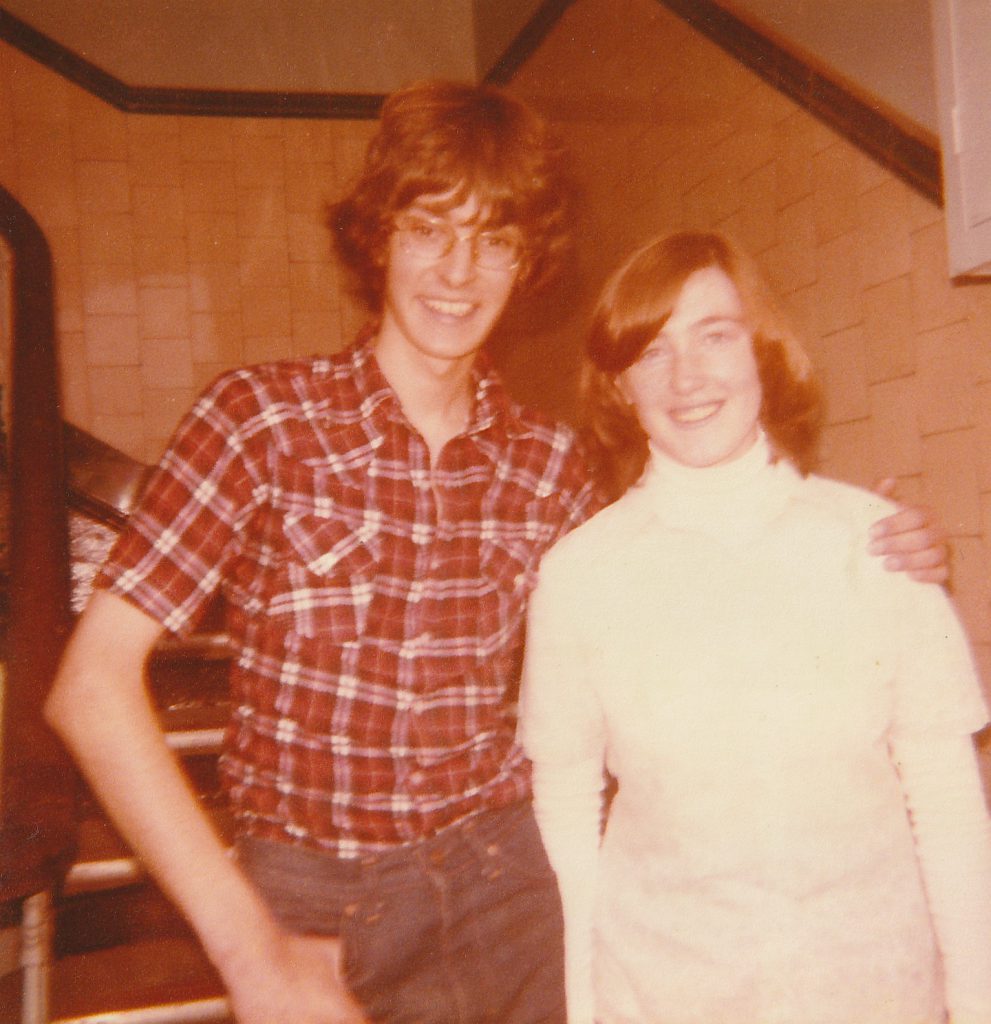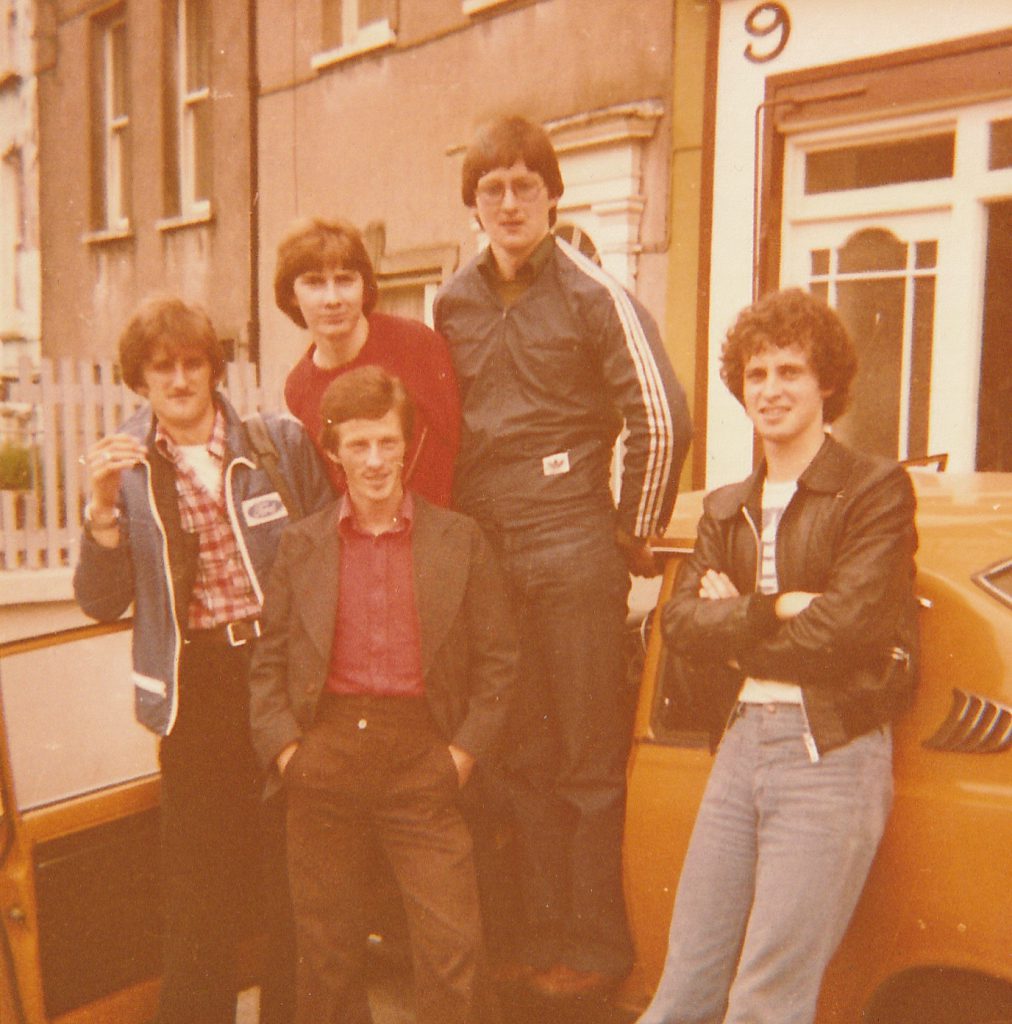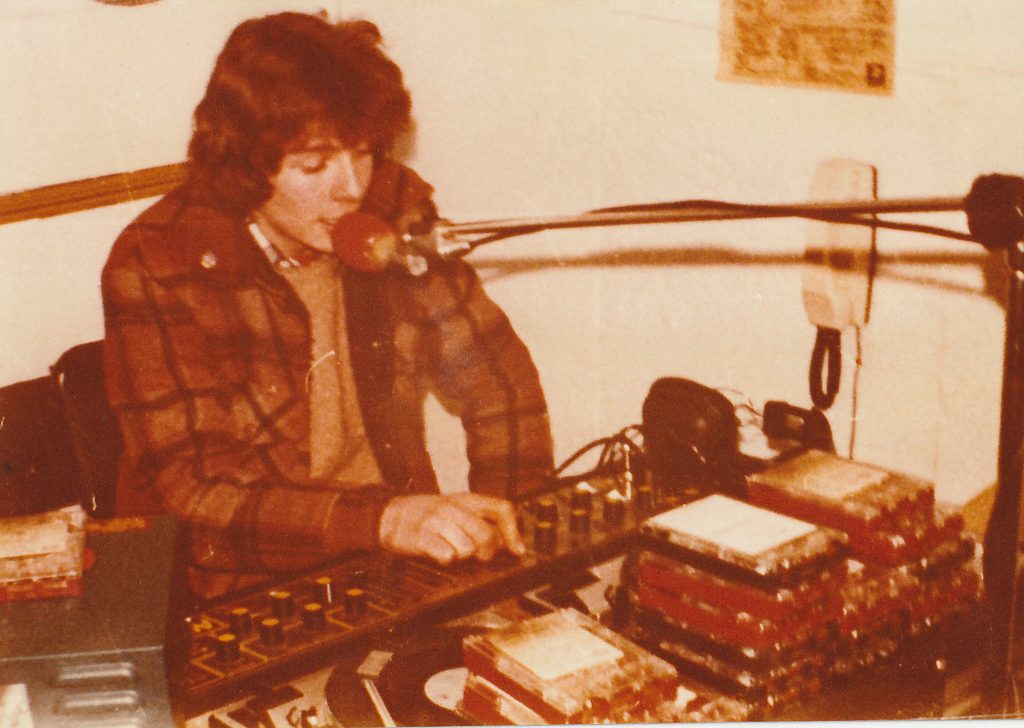Podcast: Play in new window | Download

We are delighted to launch a new series on the history of early pirate radio in Cork, due to a large donation by Lillian O’Donoghue. Lillian McCarthy, as she was then known, was a dedicated fan of the Cork pirate scene and a regular visitor to the city’s station. She has donated many hours of tapes and hundreds of photographs to our archives and we will feature these in coming months, beginning with a mini-series on the Cork Broadcasting Company (CBC).
CBC began broadcasting on 14th January 1978 announcing 230 metres. The station was first located in the suburb of Montenotte and claimed a radius of about 10 miles. It was set up by music shop owner Don Walsh (known also as DJ Daniels), Dublin-born DJ Stevie Bolger who had moved to Cork to work for a nightclub, and engineer Con McParland who looked after the transmitters. Con McParland had operated Radio Sundown International in the city in the early 1970s. It is possible that the first transmitter used by CBC was the former Sundown one.
The book The Jolly Roger: Pirate Radio Days in Cork by Noel and Trevor Welch described how CBC shook up the Cork radio landscape: ‘CBC had an instant, astonishing impact on Cork’s social scene. Its arrival on the airwaves electrified local youngsters who were desperate to listen to their favourite pop and rock music. If RTÉ was perceived as “stuffy” and conservative, CBC was exciting, brash and willing to try new ideas’.

Don Walsh is quoted in that book as saying that CBC was set up to try in Cork what was being done already by stations such as Radio Caroline in the UK. The station used sports cars as a promotion in the St. Patrick’s Day parade 1978 but was raided on 22nd March by the Department of Posts and Telegraphs and equipment was seized. According to issue 4 of Sounds Alternative, the newsletter of FRC Ireland, CBC were raided on Wednesday 22nd March 1978 whilst broadcasting from 7 Farley Place, Montenotte. However, they returned to the air the following day using a standby transmitter.
An article in the Irish Press dated March 26th 1978 was titled ‘Broadcasting Act challenge by Cork radio pirates fails’. It detailed how Bolger, Walsh and McParland were seeking a declaration that certain provisions of the Wireless Telegraphy Act 1926 were unconstitutional and contrary to natural justice. The case was heard by Justice Hamilton in the High Court in Dublin and unsurprisingly failed.

Although announcing 230 metres (actually 1303 kHz), CBC was reported to be broadcasting on 1394 kHz by UK DXer Dave Small who visited Ireland in August 1979. At that time, station operating hours were 0800- 2400, but sometimes they closed early around 2100. The address was 36 St Patrick’s Quay. In issue 9 of Sounds Alternative, an FRC Ireland team reported on a visit to Cork on Saturday September 2nd 1979. They said that CBC was broadcasting on 215 metres (that would tie in with previously reported 1394 kHz). Transmitter power was estimated to be in the region of 100 watts and they were using a long wire antenna supported by two five-foot poles, presumably on the warehouse roof. It was noted that the sound quality was a little below average, but not bad by any standard. An Irish station list published in the December 1979 issue of Short Wave News listed CBC as broadcasting on 1400 kHz. Lillian McCarthy wrote in her photo album that it closed on 8th September 1979.
This recording of CBC was made on 14th and 15th June 1979 and is partially airchecked. It begins with Alan Edwards from around 9pm on the 14th, who ends his show with a preview of the next day’s line-up. This is followed by a clip of Steve Taylor on breakfast on 15th June as well as Conor O’Sullivan and Susan James (O’Connor). At the end of the tape is a clip of Pete Andrews (O’Neill). There are numerous promos for station DJs doing discos around the city and country, a reflection of the strong connection between the pirates and the nightclub scene of the time. Audio is poor because this was recorded on a portable tape recorder held up to a radio – Lillian had yet to get a radio-cassette recorder!
Thanks to Ian Biggar, Rob Allen and Pete O’Neill for their help with background research.
